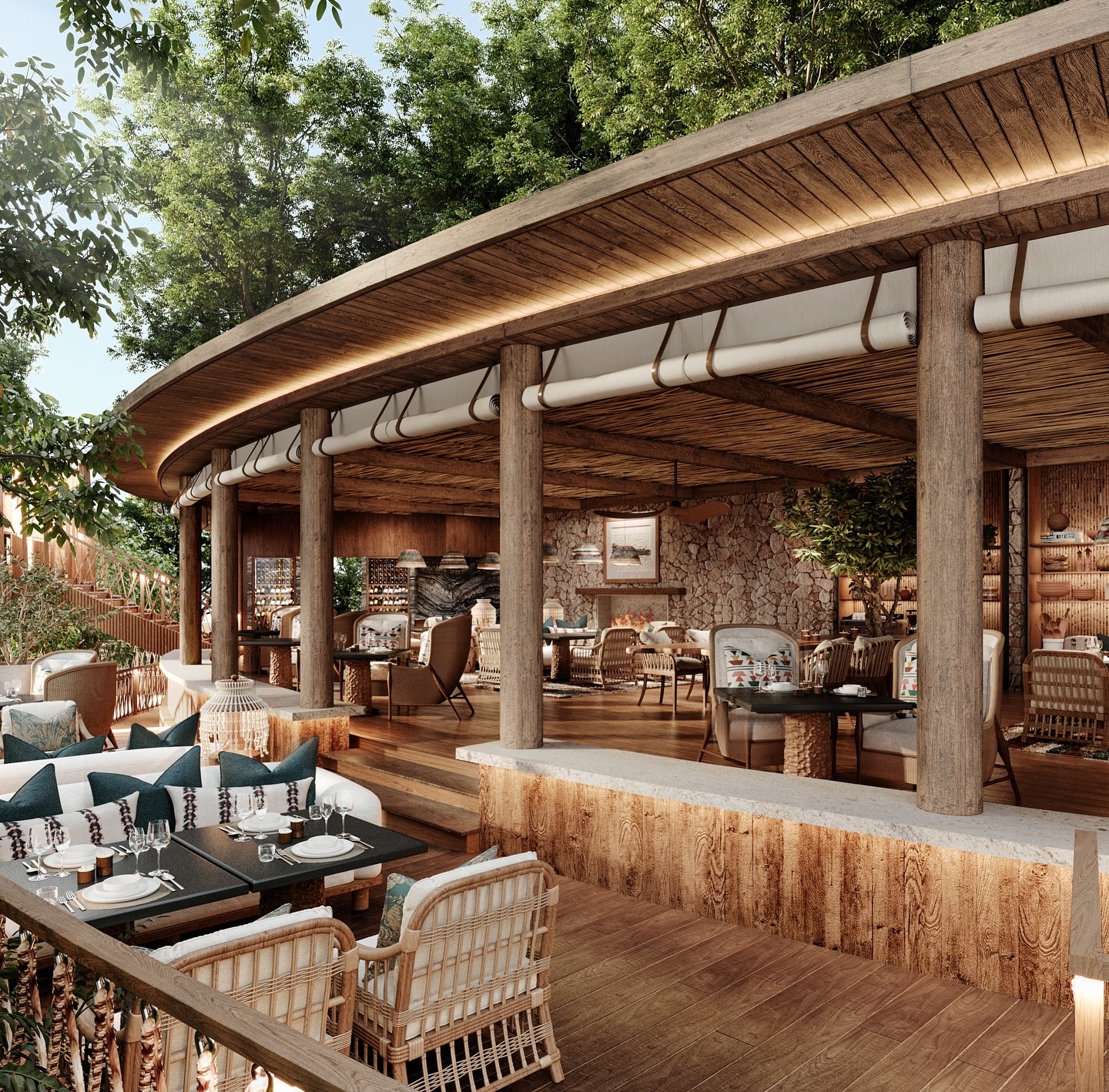
Luxury travel has always sold the idea of untouched landscapes, rare wildlife encounters and experiences money can't ordinarily buy.
So when Marriott International opened the Ritz-Carlton Maasai Mara Safari Camp on 15 August, the pitch was exactly that. Located on the banks of the Sand River, the brand promised guests "front-row seats" to the Great Migration, with tented suites equipped with private plunge pools, sunken lounges and open-air showers.
At roughly Rs 4 lakh per night, this wasn't just another safari stay, it marked Ritz-Carlton's first step into sub-Saharan Africa and the booming world of elite safari tourism. The camp features 20 spacious tented suites, each with private decks, infinity plunge pools, personal butler and both indoor and outdoor showers, offering unparalleled privacy and comfort.
But beneath this glossy promise lie accusations that the camp was built where it never should have been, and a lawsuit demanding it be torn down.
A Luxury Camp Built On A Sensitive Landscape
For many Maasai community members who have lived around the game reserve for generations, the camp arrived as a threat.
"The Maasai Mara is a fragile environment that is already overpopulated with camps for tourists," said Meitamei Olol Dapash, a Maasai elder and director of the Institute for Maasai Education, Research and Conservation told NYT.
According to him, the Ritz-Carlton stands on "one of the last places in the Mara that isn't built on", and the demand is clear: dismantle the property, restore the land and replant native trees before the next migration.
In August, Dr Dapash filed a lawsuit accusing Marriott International, Ritz-Carlton, its Kenyan partner Lazizi Mara and local authorities of constructing the camp right in the middle of a wildebeest migratory passage, something experts back him on.
"The proposed lodge sits directly on one of the major wildlife corridors between Serengeti and the Maasai Mara," told ecologist Grant Hopcraft to Reuters, who has tracked wildebeest movement here since 1996.
Joseph Ogutu, a Kenyan researcher who has studied migration patterns in the region for more than three decades, pointed to the long-term data. "Data does not lie, specifically when it has been collected over a 50-year period and it says the same thing: That place in the river is critical," he told Reuters.
Tourism Boom Vs Wildlife Collapse
Each year, over 2,50,000 tourists travel to Kenya to witness the Great Migration. The boom has fuelled rapid expansion in luxury lodges, from 95 camps in 2012 to about 175 in 2024.
Indian tourism alone has soared: from roughly 42,000 travellers in 2021 to around 1,06,000-1,07,000 in 2024.
But this exponential growth hasn't been gentle on the reserve. With more tourists come more safari vehicles. They frequently drive off-road to get closer to wildlife, scaring animals and damaging vegetation. In 2023, a viral video showed jeeps crowding two cheetahs mid-hunt.
"There are a lot of consequences," Dr Ogutu said, noting wastewater from lodges seeping into rivers and rising light and noise pollution affecting wildlife. He added that while tourism has grown exponentially since the 1900s, "the wildlife is declining exponentially and many species in the Mara have become extinct," naming the roan antelope, lesser kudu, African wild dog and oryx.
Was The Camp Improperly Approved?
In 2023, local authorities adopted the Maasai Mara Management Plan, which included a moratorium on new lodges inside the reserve. This should have stopped the Ritz-Carlton project in its tracks.
Yet a letter from Felix K Koskei, chief of staff to President William Ruto, granted Marriott "a one-time exemption" to support investment. To the Maasai community, it appeared like the rules were rewritten for a global hotel chain.

The Ritz-Carlton, Masai Mara Safari Camp. Photo: Instagram
"The county government has an agenda to bring in more luxury tourism at any cost," said Dr Dapash. He alleges local authorities and NEMA allowed the camp without a fair community consultation process.
One Maasai herder, Julius Manchau Liaram, whose signature appears on documents supposedly showing community support, said he never attended any such meeting. "They say I went to a meeting about the Ritz-Carlton, but I did not," he said. He claims his name was used without consent and immediately filed a police report.
The Wall, The Divide
Tour guides say the camp is surrounded by a wall of dirt and grass that keeps non-guests from looking in. Tracks on the wall show where animals attempted to climb over it.
"Tourists don't know what is happening to us because when they stay at a luxury camp, they are disconnected from the community," said Maasai guide Jonathan Koshal.
For residents, the case is not against tourism itself but against what they see as unchecked corporate power.
"If Marriott and Ritz-Carlton are allowed to stay where they are, it will set a precedent. We need to send a message to our community that their voice matters even if Marriott has so much power," said software engineer Emmanuel Sananka, who grew up in the area to NYT.
Meanwhile, the camp's general manager, Justin Landry, maintained that the property "supports inclusive growth, fosters local pride and strengthens our connection to the community." He stated that 90 percent of its staff is Kenyan, with 40 percent coming from the local community.
The Wider Question: In the Maasai Mara, nobody is asking for tourism to stop. Travel has funded schools, hospitals and education for generations. But how do we manage tourism better?
What Happens Next
The lawsuit is ongoing, and Marriott hasn't commented on the litigation. What is clear is that this case will shape the future of safari development in the Maasai Mara. With Marriott set to open a JW Marriott Mount Kenya Rhino Reserve and a luxury lodge in the Serengeti in early 2026, the judgement could determine whether big-brand tourism and wildlife conservation can peacefully coexist, or whether unchecked expansion will push habitats to the brink.
Track Latest News Live on NDTV.com and get news updates from India and around the world

